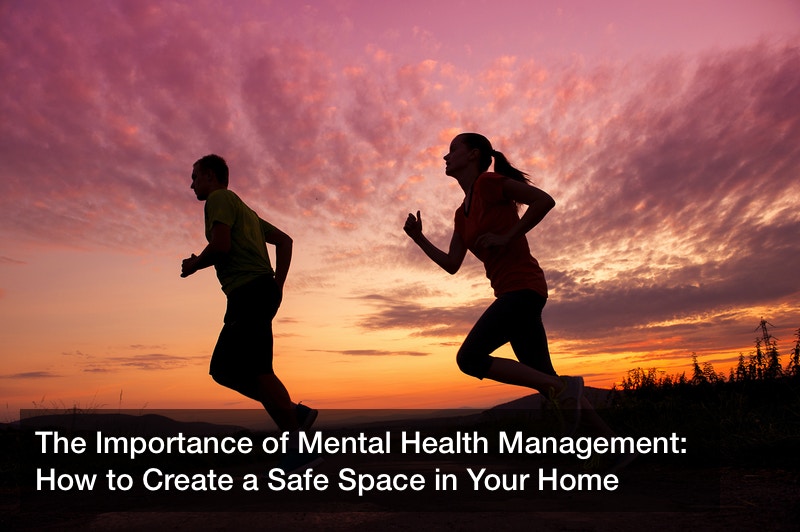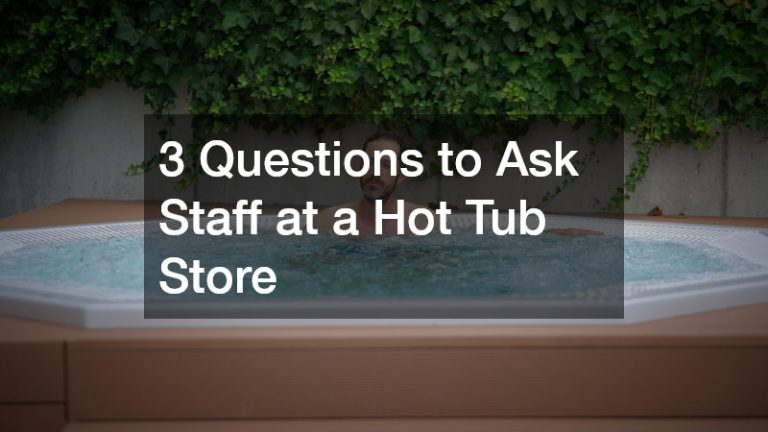

Managing your mental health is more important now than ever before. With the pandemic, many people are experiencing high levels of stress and anxiety from losing their jobs, homes, and loved ones. Some locations such as the city of Reno are responding by offering free mental health services to help save lives from an increase in suicide and substance abuse rates. Being aware of and managing your own mental health is important, and there are ways to go about it properly. Here are tips on how you can create a safe space in your home for mental health management during these unprecedented times.
Why is Mental Health Management Important?

The daily grind of everyday life can be highly stressful. Adult life requires taking on many responsibilities and expectations from others and themselves. Many adults also carry emotional baggage from trauma throughout their lives. All of this can lead to chronic anxiety, which can take a serious toll on psychological health and your overall quality of life. The need to have your guard up to defend yourself from the stress can be exhausting and send your nervous system into overdrive.
You can begin to experience physical symptoms from anxiety such as a churning stomach, a racing heartbeat, and chest tightness. Many people who struggle with their mental and emotional health try to ignore these signals that the body is sending to tell them something is wrong. They can bottle up their emotions or engage in self-destructive behaviors as a distraction. Anxiety can also create avoidance behaviors and isolation from people and events that draw fear. You can engage in wishful thinking that the situation will improve on its own or resign yourself to feeling that this is just how things are.
Escalating tension can also cause major conflicts in relationships, which may lead you to divorcing your spouse or losing lifelong friends. All of these things can be managed and even prevented with proper mental health management. There are things that you can do to help you be resilient during tough times, allowing more enjoyment and happiness. Safe spaces allow individuals to practice mental health management and feel free to be themselves without judgment or stress. This space allows people to recharge so they can maintain their physical and mental health and be productive members of society.
What Can a Safe Space Look Like?
A safe space can look any way you want according to your personal taste. You can turn any room in your home into a quiet spot where you surround yourself with things that help you feel better. Some individuals may find that their basement or garage may be the perfect place for a personal cave or workshop to get away from it all and work on projects they love. You may create a tranquil space where you can engage in virtual therapy sessions for yourself or perform research and speak with a local Medicare insurance agent about your parents’ health. You can use your bedroom as a sanctuary retreat by lighting scented candles and practicing meditation or journaling for better mental health management.
Approximately half of all homeowners spend six or more hours each week in outdoor spaces that they have upgraded. You can turn your outdoor space into a relaxing retreat while spending time in nature. When considering a safe space in your home, think about areas where you can be physically and emotionally safe for a period of time. This may mean closing the door to the bathroom for a relaxing bubble bath or watching your favorite television show in the basement while your partner or a babysitter watches the kids. Play with different ideas to figure out what will work best for you.
What a Safe Space Should Offer

A safe space should be a place where you can get away from everything and everyone. It should be filled with things that make you happy and help you with your mental health management. A safe place offers the ability to take time to check-in and release negative emotions you may be subconsciously storing. It acts as a protective barrier from incoming stress to help you prevent long-term damage. In a safe space, you should be able to feel like nothing is going to physically or emotionally harm you while you’re there.
If you are a caregiver for kids or elderly parents, it can be difficult to carve out a safe space for yourself during the day, especially during the pandemic. You may need to get creative when it comes to making time for yourself. With little ones in the house, you may want to consider day care for a few hours a week to get a break. If you can’t afford day care, ask your partner or a trusted friend to watch the kids while you prioritize self-care. This can help you avoid burnout and become a better caregiver.
For elderly parents, home health care can give you a much-needed respite. A home health aide can assist with household chores, errands, and taking care of physical needs and companionship for seniors. Many insurance companies help pay for home health aides for a certain number of hours each month so there’s no out-of-pocket cost for you. This will allow you to get away from stressful caregiving duties for a while so you can recharge in any way you see fit. Even if you can’t get out of the house because of the pandemic, you can still achieve better mental health management and obtain peace of mind when it comes to your loved ones.
Dealing With Stress
Long-term stress can wreak havoc on your entire system and make it easier for you to get sick, both physically and mentally. Developing personalized strategies to reduce stress can keep you healthy and avoid expensive medical bills. There are many ways you can reduce stress in your daily life. There is plenty of research showing numerous benefits of CBD oil for mental health management to help eliminate stress and anxiety. Recognize what triggers stress and anxiety for you and avoid those situations as much as you can.
Daily exercise can be a great form of mental health management. Whether you’re a parent, expecting, or engaging hormone therapy to become pregnant, there are several ways to take part in physical activity. Daily exercise releases endorphins that can boost your mood and relieve symptoms of stress, anxiety, and depression. Listen to music or write your feelings and emotions in a journal. Spend time with friends and get involved in activities outside of the home. Seek professional help by speaking with a licensed therapist or your family physician.
Personalize Your Safe Space

The best way to incorporate mental health management into your everyday life is to personalize your safe space. Use home decor to create a custom safe space that brings you joy and peace. Add sensory items such as scented candles or heated blankets for emotional grounding. Choose soothing colors to create a serene and calm environment, such as white, a light grey, or a soft yellow, blue, or pink. Surround yourself with plants and other greenery to purify the air.
Reduce stress and anxiety from clutter by making sure your safe space is clean and organized. You can reduce stress by having a calendar to keep track of all your important engagements, such as a trip to the doctor or a paintless dent repair appointment for your car. Eliminate the use of electronics such as TVs, computers, and smartphones that can be conduits of stressors. Fill your surroundings with the things that you love most and that make you smile. Use natural or soft lighting to bring additional warmth to your safe space.
Maintain Your Physical Health, Too
While mental health management is incredibly important, you also need to maintain your physical health as well. The best place to start is by scheduling a physical exam with your family physician. Women should also get regular checkups with a gynecologist. It’s also important to see a dentist twice a year for routine exams and cleanings. These checkups can help detect problems early and treat them before they can become serious. During these appointments, these health professionals can recommend the best options to help combat stress and anxiety to maintain optimal physical health.
Participate in moderate physical activity for at least 30 minutes every day. Eat a healthy diet, drink plenty of water, and get at least eight hours of sleep each night. Avoid excessive alcohol usage that can numb your emotions. Eliminate sugary and caffeinated beverages that can cause increased agitation and irritability. Take prescribed medications as directed by your family physician and ask about alternative treatment options.
Other Ways to Care for Yourself Outside the Home

Self-care is an integral part of mental health management by keeping you focused on your own wellbeing. It involves doing things that help you feel better or treat your symptoms. Many people isolate themselves at home when feeling anxious or depressed. However, there are endless things you can do outside the home to boost your mental health. A change in environment can be beneficial for improving your mood or laying aside your problems for a short period of time.
Make a list of all the things that you love to indulge in. Select a few of your favorite items and schedule them into your week just as you would anything else. Some ways you can treat yourself to self-care outside the home include getting your nails done or obtaining Brazilian hair removal. You can go out with roommates, your partner, or your kids for dinner or a walk in your local park. Get a massage or plan a weekend getaway road trip.
Prioritize Mental Health Management While Working From Home
With the recent pandemic, many people are finding themselves working remotely from the comfort of their own homes. Trying to establish a good work-life balance from home can take a huge toll on mental health management. Many adults are struggling to accomplish work tasks while juggling virtual schooling with their children. This can result in adults working longer hours than they normally would in order to meet deadlines. The increased workload and stress often put self-care on the back burner.
Excessive workloads can wreak havoc on your mindset. It’s important for those working from home to take regular timed breaks to relieve tension and stress. These breaks can allow you to take a few minutes to create a safe space to stretch and breathe in order to reset your mindset. By doing so, you can be more productive and have more energy. It allows you to keep some sense of control when everything around you is chaotic.
Control Your Information Intake

With all the instabilities that the pandemic has created around the world, there has been a barrage of media coverage and the spreading of false information. While it’s important to be informed about matters that can affect you, too much exposure can be detrimental to your physical and mental health. Fear-based reporting can cause your anxiety and stress levels to rise, which can impact your performance at work or with household responsibilities. Limit the amount of time you spend on social media sites or listening to the news. Read relevant information from a couple of trustworthy sources and ignore the rest.
Turn off the notifications on your phone and resist the urge to constantly check in to see what’s going on. Whenever you feel the impulse to check, replace it with a healthy habit instead. Drink a glass of water, breathe deeply, or meditate for a few minutes. These healthy habits can help create a safe space within yourself to protect yourself from the chaos. It can give you the opportunity to monitor your feelings and take control of your emotions in order to stay strong during tough times.
With so much chaos swirling around in our modern world, it’s important to engage in mental health management to stay healthy and sane. You can use many of these tips to help relieve your anxiety and stress to improve your quality of life. Utilizing a safe space is an excellent way to practice self-care and be free to be who you truly are. They can provide a sense of protection when everything around you is uncertain. Be proactive with your mental health management and create your own safe space today.







